- Part of KennanX
- Podcast
Changing Russia’s Future with Zhanna Nemtsova

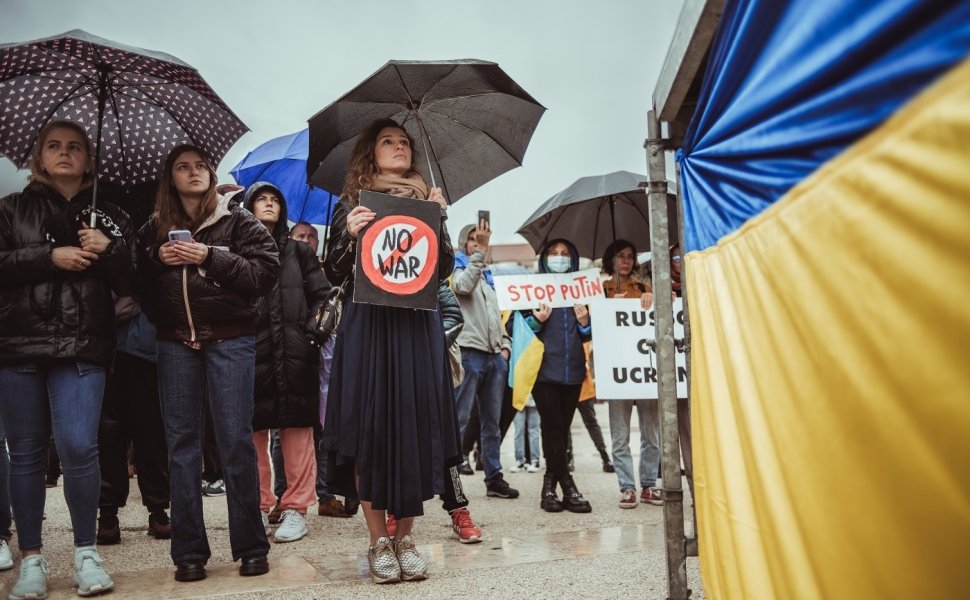
Jill Dougherty sits down with Zhanna Nemtsova to discuss her work with the Boris Nemtsov Foundation, which Zhanna founded in 2015 in Germany after her father’s assassination, and the generational gaps that have divided Russian civil society. Their conversation touched on the prevailing apathy of Russian society in the face of Russia's invasion of Ukraine, propaganda in higher education being used to advance Putin’s agenda, and why the key to Russia’s democratization lies in education reform.
Show notes:
- Boris Nemtsov Foundation for Freedom
- Boris Nemtsov Master's Program at Charles University in Prague: announcement (in English), program website (in Russian)
- Another Russia podcast by Zhanna Nemtsova and Ben Rhodes
Episode Transcript
-
KennanX Episode 28: Changing Russia’s Future with Zhanna Nemtsova
Jill Dougherty: From the Kennan Institute in Washington D.C., welcome to KennanX, a podcast on our never-ending quest to understand Russia, Ukraine and the surrounding region. I'm your host, Jill Dougherty.
***
Jill Dougherty: It's been more than eight years since Boris Nemtsov, physicist by education, who became one of the leading politicians supposed to Vladimir Putin, was assassinated on a bridge close by the Kremlin. Since then, his daughter, 39-year-old Zhanna Nemtsova, has carried on his mission as co-founder of the Boris Nemtsov Foundation for Freedom. It promotes Nemtsov's political legacy and implements programs in education and freedom of speech. I saw Zhanna Nemtsova recently in Tallinn, Estonia, at the Lennart Meri Security Conference, and she agreed to join me on my podcast when she was back here in Washington, D.C.
***
Jill Dougherty: Well, I'm happy to actually have somebody here in this studio physically, because so many times we do this podcast remotely and you know, technically it's fine, but it's really nice to have a person to talk to and it's particularly nice to have you here, Zhanna. I've been a big fan of yours. You've really carried on, you know, in a fantastic way, after your father's death. And just really, I'm sure, making him very proud with what you're doing. So maybe for our listeners, you could start with that. Where are you based? Where are you living? And what precisely are you doing? I know it's Nemtsov Foundation, but tell us a little bit about more what you do.
Zhanna Nemtsova: My name is Zhanna Nemtsova. As you've already mentioned, my father was Boris Nemtsov, a Russian slain opposition politician who was killed in Moscow in 2015. Since his assassination, my life has dramatically changed and I decided to carry on his political legacy. So actually, in Moscow, I worked as a journalist. I worked for RBC Television [РБК/RBK TV], which is like the Russian language business news network, kind of Bloomberg. And I commented on corporate news and stock markets, shares, and bonds.
But after my father's assassination, I moved to Germany and I joined Deutsche Welle, the German public broadcaster. So I worked there for five years and I did interviews with politicians or opinion leaders who had a strong stance on Russia. And I even traveled to the U.S. I interviewed the late Senator [John] McCain for example, and Senator [Marco] Rubio, among other personalities.
But in 2020, I decided to quit my job and to focus on the development of the Boris Nemtsov Foundation, which I registered in Germany as well in 2015. So, we are doing a lot of different things, but our key objectives are to advance education and media freedom. And all our projects are focused on these two areas because we believe that without education—broadly speaking, I would say education, reeducation and more broadly enlightenment—and without freedom of speech, we will never, never be able to rebuild Russia. We are not a political foundation because the German law is very restrictive when it comes to the nonprofit sector. So, we cannot lobby any political decisions. We cannot support any candidates and participate in political campaigns. Other than that, we can do a lot of things.
So this is briefly who I am—and last but not least, I'm in podcasting! So last year I created a podcast, “Another Russia” together with Ben Rhodes. Ben Rhodes was an advisor to President Barack Obama and he now works as a journalist and a writer. And we created this podcast for Crooked Media. So, if you feel like listening to it, please do that.
Jill Dougherty: Definitely, we’ll promote that at the end as well. And speaking of promotion, there actually is a project that you will be working on with the Wilson Center, the Kennan Institute. Can you tell me a little bit about that? I guess a master's degree program at Charles University in Prague?
Zhanna Nemtsova: I would be happy to work together on that with Kennan Institute, but currently I'm just trying to spread the word that we will launch this program in Prague this fall. So, the idea is that—just some political explanation for this program. We need it here at the Kennan Institute.
So, since the invasion, Putin has literally destroyed Russian education and humanities. So, he uses education as a tool to indoctrinate a new generation of people. So, this culture of critical thinking of challenging different schools of thought has been ruined by Putin because it's not in his interests to have any critical thinking.
So, but there are a lot of people—first of all, a lot of scholars lost their jobs and went abroad. I mean Russian-speaking scholars. And second, there are a lot of people, a lot of students who are still willing to get higher education in humanities. And they can't afford to go to the U.S. because it's very, very expensive. They do not speak foreign languages to be admitted to any foreign language program. So that's why we are trying to respond to this current challenge, because if you don't have human capital, you will not be able to do anything in the future. And we decided to create their program, the master's program, Russian Studies, Boris Nemtsov Educational Program, named after my father. So, to fill in this gap and we are we are doing it are in cooperation with Charles University. So, the program will be accredited at the Faculty of Arts at Charles University with the support of the Faculty of Social Sciences.
So I think that we will shortly open this program and you will be able to apply. We are not only interested in students coming from Russia or Russians, we are interested in American students willing to learn more about Russia and to improve Russian language skills because currently, I mean, so I know that there are some students in the United States of America who are still studying Russia, and they “Keep Calm” and they study Russia.
Jill Dougherty: I have a number of them. I teach at Georgetown, and there are students who really want to continue, get into the field, continue and it's difficult because you basically...
Zhanna Nemtsova: You cannot travel to Russia, Belarus, and of course, because Ukraine is a war-torn country, you cannot go to Ukraine. So, you have two options, Kyrgyzstan and Kazakhstan. And literally American students go there. So, I would like to propose the third option, which would be Prague, because Prague has a very vital Russian speaking community. So, they will be definitely exposed to a lot of Russian language and we'll have very good Russian speaking scholars there. We’ll have actually an international faculty, including a Russian speaking scholars, Czech professors, and even Tim Frye from Columbia University will teach a compulsory course. He is one of the best specialists on Russia. So I actually met with him here in D.C. Well, so yes, please apply, please follow us on social media. Boris Nemtsov Foundation on Instagram, Facebook, Twitter.
Jill Dougherty: We will check it out. You know, Zhanna, I wanted to ask you. You were talking about education and how Putin really has destroyed that system and I would have to agree with you. And I've been reading about these courses, most of them are kind of new, but a few have been around for a little while, which are courses in Russia's history, and they are required courses for young Russians and all the way up into college, university. And they give I think what I would say is a very edited, propagandistic version of what Russia is about. Now, can you tell us, you obviously know a lot about this, just in brief, what's happening to education right now in Russia under Putin?
Zhanna Nemtsova: In brief, it's difficult. So, in brief, it's just one sentence—He uses not only higher education, but generally speaking, education—it also applies to schools, to school children—as a tool to promote, to advance his propaganda and his agenda. And in these very tragic circumstances, to justify his brutal, unprovoked aggression—very bloody—in Ukraine. So, this is what he's doing to higher education and in schools. So, in schools across the country they, I think a couple of months ago, probably last year even—I don't remember when exactly—they introduced a new clause. It's called “conversations about important things.” This is the exact translation. Right? So, this is like part of this patriotic upbringing, and also it applies—so the objective for universities is to educate a new patriotic generation. So that means that they just indoctrinate people. There is only one point of view. I assume—I haven't yet read the history books, but I assume that they heavily edited all the texts, and they removed some parts from that, and they [are] trying to rethink this history in their own interests.
History is all has always been an important and powerful propaganda tool, not only in Russia. So, they are not inventing something new. Russia is not where things have ever been invented. But they're very skillfully using it. And why they're doing it? It's very obvious, because if you look at our society, you will see that we even in relation to the war in Ukraine and how people perceive this war. I just have to make this disclaimer that it's very difficult right now to conduct any surveys or polls in Russia. I totally understand. But still, if you even rely on previous surveys, and you look at different people, you clearly see this generational gap in people's perceptions, because younger people tend to be more critical, more open, more pro-democracy, their patterns of media consumption are different, and an older generation of Russians is more conservative, is more about patriotism, militarism and traditions. So they try to reverse this trend and unfortunately, they might be very successful.
Jill Dougherty: Well, that's what I wanted to ask, because, you know, I actually do teach a course that focuses on young people in Russia. And let's say three years ago, there were there were polls and there were a few books, in fact, one that I was using as a textbook, by Russian experts who were primarily sociologists who were studying young people. But it feels like things are really changing. That the war, unfortunately, is affecting even young people. And of course, young people are the ones who are dying in this war. But if—I know this is really difficult for you to generalize, but could you describe I mean, you know, you're a young person. What do you think? Is there a prevailing feeling among young Russians about their place, about Russia's place in the world after this? You know, after the invasion? Because look, Russia—the even the word is toxic. A lot of Russians can't get visas. There are sanctions. They can't study abroad very easily. You know, it's very difficult, I think, for young people. So where would you say their thinking is built about all this?
Zhanna Nemtsova: Well, it's very difficult because young people are different. It's quite a diverse group. And if you're talking about young Russians fighting in Ukraine, you should understand one thing. It's not something new, but in Russia's case, it's a war of the poor in the interests of the rich, Putin and his clique. That's it. So here, the idea for him is to remain in power for life. So mainly when we're talking about partial mobilization, mainly people who are poor, who have no resources. Not only conscription, but those people who signed their contracts, these are very poor people. It's not about a lot about Moscow and St. Petersburg. This is one thing. And these people, they are probably young, they're way younger than me. They of course, I think that they believe in all those propagandistic narratives. They're not that well-educated at all and they don't think, probably, that much. So that's one thing. Another is that there are young people in big cities who are more critical.
But I want to highlight one important thing. Russia is under sanctions, people cannot get visas to go to study abroad, not because of Western governments, but because of Putin and his war. This is—and I think everybody should understand this. It's not the other way around. And of course, now it's also with the United States, when Putin ordered to like fire all Russian citizens who worked at the embassy. I mean, he complicates even the work of Western embassies in Russia. They are severely understaffed.
Jill Dougherty: That's true.
Zhanna Nemtsova: So this is how it works. It's not about so there are some very severe restrictions, visa restrictions imposed on Russians by some European countries, but not all of them. But what Putin is doing, he is trying to make sure Russians are completely isolated. They will not travel abroad. They will not have access to quality education or anything like that. That's the goal. So, if you live in isolation for a long period of time, you will be affected by propaganda. That is just one hundred percent true. So now the only thing, the only source of information for Russians is of course, the Internet. And since YouTube currently hasn’t been blocked, this is the main source of information. So once again, younger people are very diverse and it depends a lot on their status, on whether they have resources or they don't have resources, whether they were born in big cities or in small villages and small cities where there are no jobs.
Jill Dougherty: You know, a lot of my friends who were journalists who fled after the invasion, and you left much earlier. So, you've been out of Russia for a while. But their quandary, I guess, was that they were not quite sure when they would be able to go back. I mean, I remember back in February, March, you know, maybe April, people were saying, well, maybe the war will last for three months or something and then we can go home. But of course, that hasn't happened, and the war can stretch on for a very long time. So, I guess my question is, what do Russians, and I guess we can't generalize, what about you individually? As you are outside of Russia, yet your focus is on educating Westerners about Russia continuing, you know, a high level of education with values that you would like to see in Russia. What is your hope for, I don't know, influencing Russia at all? Or is it just something that you have to say, “Putin's in charge and until he is gone, nothing will change.”
Zhanna Nemtsova: This is true. So no, nothing, everything will change to the worst. Let's put it this way.
Jill Dougherty: If what?
Zhanna Nemtsova: If Putin remains in power.
Jill Dougherty: Oh, okay. All right. Yeah. Just wanted to make sure.
Zhanna Nemtsova: Nothing will change. No, it's too optimistic. It will change to the worse. So I didn't—I didn't elaborate. And one of the points in your previous question about what's the prevailing mood right now? So I think the prevailing mood is apathy, no hope. So there is no future in Russia. Russians, pro-Putin, anti-Putin, Russians. It doesn't matter. They have no vision of future. They don't know what they will do in one month. They don't know what they will do in two months, let alone in one year. So under these conditions, these are very difficult conditions. So, this is just something that that is happening because in countries like the U.S., you are always talking about the future. It's what mainly inspires people. Future—which will be brighter than the present. In Russia, so the idea is that the future might be worse than the present. And the whole hope is around to remain in this environment. It's a low point, but people don't want things to get worse. And this is, by the way, Putin is very subtle and he skillfully uses and manages people's expectations because over the last years, the situation in Russia, both economic and social, has worsened a lot. But he's still, let's say, yes, he's an autocrat, but he's quite he's still popular, not really popular, but yes, he has some support. Because he says if I'm out, it will be worse, and it will be war. It will all happen abruptly. And what's your offers is that it will not happen abruptly, but it will happen gradually. But we can have different opinions about that. But he's managing people's expectations, being one of the worst rulers in terms of his policies, ruining his economy, his social sphere, everything. He is managing people's expectations by saying “it might be worse without me.”
Jill Dougherty: You're right Zhanna.
Zhanna Nemtsova: That’s It.
Jill Dougherty: And I would argue that he's depoliticized people.
Zhanna Nemtsova: That's one of the factors that has led to the war. But he was doing that for many, many years. He made sure ahead of his war, he made sure people were absolutely disengaged from politics and regarded it as something non-essential. As something for some marginalized activists like myself. So, when coming to me, because I don't want to generalize, but it's obvious that Putin is managing expectations—that “it might be worse without me.”
***
Zhanna Nemtsova: So, I'm not a good example. First of all, I left Russia eight years ago, but I traveled to Russia many times. So, my last day in Russia was on day one of the war, and I left on that day. But I am an exception in many respects because I have vitality.
Jill Dougherty: Vitality?
Zhanna Nemtsova: Vitality. Yes, because I can cope with a lot of pressure and a lot of stress. I think so.
Jill Dougherty: Like your father.
Zhanna Nemtsova: Yes! I understand that many people, many people who have been in the resistance and Russian resistance for many years, and they don’t vitality and yes, they are absolutely disorientated, distracted. And it's the same applies to people who are abroad, basically, that also their future is not quite predictable. So they don't know what they will do next.
Jill Dougherty: Yeah. And I think you know with young people…
Zhanna Nemtsova: I just want to say one more thing. You're right. So because lots of people who left Russia during the first couple of months, they were thinking that this war wouldn't last for many years. And now many people understand that this war that Putin can sustain this war for a prolonged period of time. And this, of course, creates a lot of resentment and different negative emotions. And of course, it affects not only Russia because in Ukraine, [there’s] a lot of suffering in Ukraine. So most of the suffering is in the Ukraine. And of course, it's very difficult to face the reality and to understand that Putin can go on with this war for a long period of time. And that's what President Zelensky understands very well. And I think that he has voiced it a couple of times.
Jill Dougherty: What do you say to people like, I know a Ukrainian woman who really argues very strongly that Russians should be pariahs, that they should not be allowed anywhere, even if they're, let's say, against the war or not supporting it. There's still, you know, in Russia, this would be primarily people in Russia, and they're not on the streets protesting. Therefore, we shouldn't allow them in Europe. Forget about giving them visas. What do you say to people who are very strongly, you know, feeling that?
Zhanna Nemtsova: It's a difficult question for me because I am a citizen of Russia. I didn't choose to be a citizen of Russia, but I always say I during any of my public appearances, that I, I mean, I have nothing to do with Putin. I have now voted for Putin. I think that my father was killed on Putin's order. But it doesn't suggest at all that I don't feel this responsibility and pain. And I'm trying to do everything I can to help. And the Nemtsov Foundation is funding—quite a big program for ourselves to support—fifteen Ukrainian students in most of them are based in Prague. And one student whom I met in New York, she's at Columbia University.
So it's our job to do what we can to help. So the best thing, I think, to think about antiwar Russians is to think that they are your tactical allies. You don't have to be friends with them. You don't have to love them. And I totally understand. And also, in such a situation, when Russia is waging a war against Ukraine, a very bloody, unjustified, medieval war, I understand the Ukrainians that in order to fight effectively, they should hate. It does not mean that they should hate forever. But reconciliation will take a lot of time. But in order to fight, right now they are on the frontline. They’re fighting with Putin. They should hate, otherwise you can’t fight.
And that's what I—I was at Columbia University on the invitation of our fellow. She spoke about Europe initiative, a brave generation. She is originally from Horlivka, she survived two wars. She so she left Horlivka in 2015? I think so, yes, even 2014. And then she was in Kyiv when the war started. And I urged her to leave Kyiv. And she created this brave generation, this initiative, to help Ukrainian students to get accepted to American and European universities. So, and then afterwards there was a public talk of Sviatoslav Varachuk, who is a very renowned Ukrainian singer. And he was asked a question about Russia, the Russian language, and Russians in general. And he was very right by saying that it can destroy you to live with haters forever. But because as long as we are fighting right now and we have to kill our enemies, we cannot afford to love them. We otherwise we won't be able to fight.
Jill Dougherty: It's a difficult situation.
Zhanna Nemtsova: It’s a very difficult situation. It's a big shame. It's a lot of pain and it's really difficult to say to Ukrainians what they should do. They know what they're doing. They are fighting for their country. So, we should help and we should understand their position. I think so. And I am not I am not in a position to say whether they're right or wrong. This is their position.
But about protesting I want to say one thing. Protesting right now is impossible in Russia, but there are individual protests, lots of people, hundreds of people are in jail. And also, ordinary people, not only well-known people. This is one thing. Another thing which is, right when it was possible to protest, very few people showed up. And one good example of it is that when my father was assassinated in a city with over 16 million people, 50,000 people took part in the protest sanctioned by the authorities. And others didn't show up. And then this way, Ukraine's right. You have to do something. You have to be engaged. You have to think. And it's not this the whole concept— “It's not happening in my backyard” —has proven to be absolutely, a how do you say that, destructive.
Jill Dougherty: Let me ask you a question that right now is kind of a big subject on many levels about Russia. And it's a debate over whether Russia actually can be a normal country. A lot of people in the academic field say, you know, by nature Russia really is an imperialist country. It always has been an imperial power, its culture, its language, and everything leads it to be that way and it can't do anything. But do you agree with that? I mean, is that Russia?
Zhanna Nemtsova: No with this I don't agree at all because it was rooted in American tradition to have slaves. And then you abandoned slavery, thanks to Lincoln. And it's a good example. I don't believe that this is something very prominent in academia. And also, Germany is a good example.
Jill Dougherty: But what could Russia do what Germany did?
Zhanna Nemtsova: Everyone can do everything. But it depends on many, many factors. Yes, Germany is a different case because Germany was occupied by Allied forces. And they enforced a lot of things. This is counterargument to my argument. Yes. But I think that progress is inevitable in the long run. And there can be setbacks on this way. What we are seeing right now is—in across the world and Russia is one of the most egregious examples of that—but this rise of populism in politics, authoritarian rule across the world. It's like a setback from what was happening in the second half of the 20th century and was a wave of liberalization. So, it was setbacks. So progress is inevitable in Russia. I'm not a historian, so don't judge me too hard. But Russia is obviously lagging behind the world, the developed world, because we had 70 years of communism. So, we're one century behind. Something like that. Yes, I think it can change and it will change, but I'm not sure [that] it will come tomorrow or something like that.
I do not believe in this theory of predetermination, that everything is determined and you cannot change the course of history. And I don't believe in this and natural things because Russians can, as I see Russians, easily integrate into many Western countries. So, I just think, yes, that's possible, but it requires a lot of effort, because in Germany, the important part of it was their work with their society, because genocide—at first it's very difficult to accept your defeat, and to say I was wrong, and to admit guilt and responsibility on a personal level, on a societal level, etc. So, and yes, it's about it will be all about reeducation, because you cannot have a sustainable democracy if you have one democratic leader, it will not last long. So that should be—and that's why I'm very serious about enlightenment and about education, and then in this specific situation, reeducation.
And also just one more thoughts on a more philosophical note—is not only communism was a problem, but also in Europe there was a period in history called Enlightenment, that eventually led to the creation of what we now know as European values and institutions that make sure that these values are being acted upon. And in Russia, this Enlightenment ended with this correspondence between Catherine the Great and Voltaire. Voltaire, who said that it's too early to abandon serfdom, that it's not in the nature of our country to—not to have serfs. So I think that this is a very weak argument about predetermination of something. I do not believe in it at all. Because if you believe in it, you mean you can just keep calm and do nothing. Everything is predetermined.
Jill Dougherty: Is it something—maybe we'll end on this—is there something that you remember from your father, what he said from his political life and his devotion to causes in Russia that you remember specifically. Anything that he told you that you always keep in your mind?
Zhanna Nemtsova: Some specific thoughts? I think they are all available online.
Jill Dougherty: Yes, but personally.
Zhanna Nemtsova: Personally. So, he wanted me to be, so it was he was really, really, very much obsessed with the idea for me to be a financially independent person. So, he wanted me to build my own career, not to depend on anyone. And I think it was foundational for my future life, that I was taught—it's a very, I think, American style. I was taught that I should build my own life and career and count on myself, not on others, on my parents, on my boyfriends and my husband, so that he wanted to ensure that that I'm an absolutely independent person, which I am right now. So that's—yeah, he was very he was very in favor of me mastering foreign language, especially English. So and that helped me. I understand this is something very basic, but you have to understand that thousands and millions of Russians can’t speak any English.
Jill Dougherty: Well, that's true. Well, it was really wonderful talking with you, Zhanna. And I think the fact that you're going to work in education, and that you are working in education, is so critical because that's the thing, you're right. That's the thing that changes people. And it can change countries, and the future. Because right now, I mean, when I look at Russia, I don't know if I'll ever go back. I don't know what kind of a country will be in two years, five years, what's going to happen. But it's not looking good.
Zhanna Nemtsova: Yes. And I have to agree, as and I have more or less the same feelings, but I have this vitality and I’m trying to try at least.
Jill Dougherty: Well, you're doing it. And thank you very much. Really great to have you with us.
Zhanna Nemtsova: Thank you very much, Jill.
***
KennanX is a product of the Kennan Institute at the Woodrow Wilson International Center for Scholars in Washington, DC. It is the Wilson Center’s oldest program, founded in 1974 by George F. Kennan, American statesman, James Billington, historian and former Librarian of Congress, and historian S. Frederick Starr. Inspired by them, the Kennan Institute’s mission is to improve America’s understanding of Russia and the wider region. Thanks for listening.
Guest

Moderator
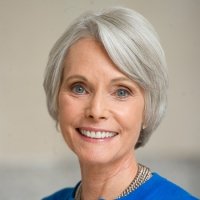

Kennan Institute
The Kennan Institute is the premier US center for advanced research on Eurasia and the oldest and largest regional program at the Woodrow Wilson International Center for Scholars. The Kennan Institute is committed to improving American understanding of Russia, Ukraine, Central Asia, the South Caucasus, and the surrounding region through research and exchange. Read more

Related Episodes
Browse all episodes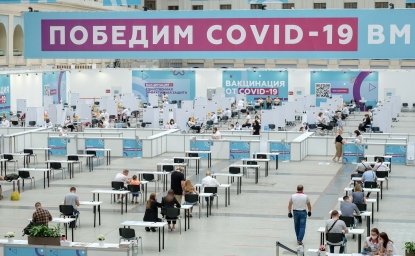
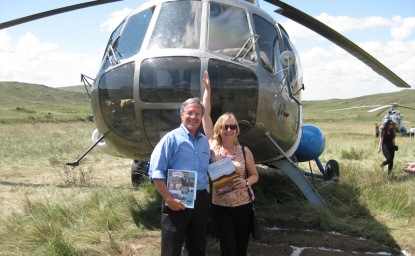
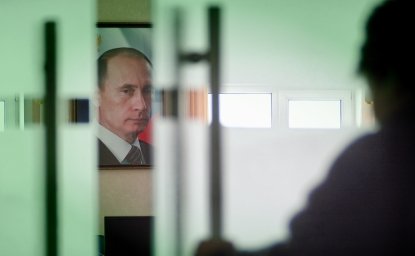
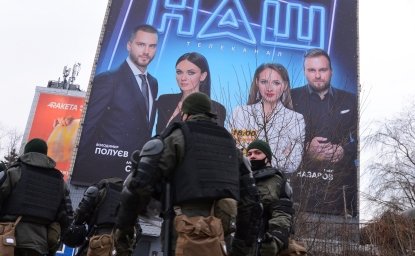
- Disinformation